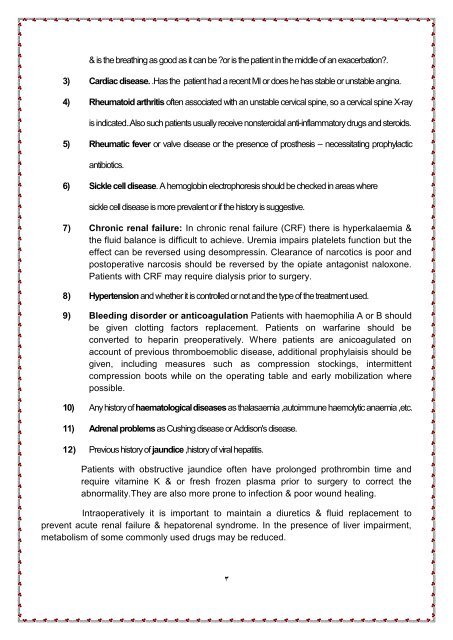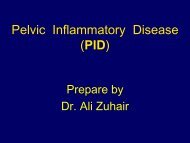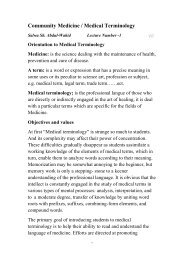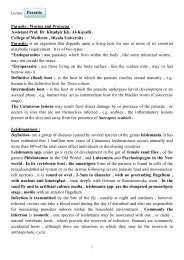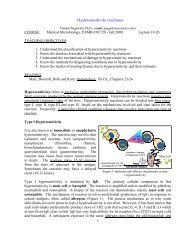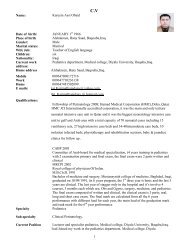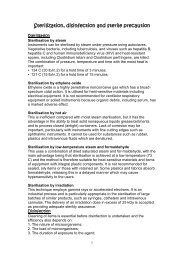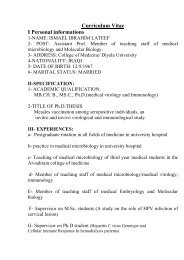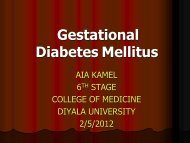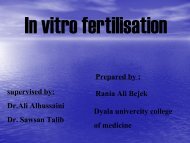Preoperative preparations Obtaining consent The patient has ...
Preoperative preparations Obtaining consent The patient has ...
Preoperative preparations Obtaining consent The patient has ...
- No tags were found...
You also want an ePaper? Increase the reach of your titles
YUMPU automatically turns print PDFs into web optimized ePapers that Google loves.
& is the breathing as good as it can be ?or is the <strong>patient</strong> in the middle of an exacerbation?.3) Cardiac disease. .Has the <strong>patient</strong> had a recent MI or does he <strong>has</strong> stable or unstable angina.4) Rheumatoid arthritis often associated with an unstable cervical spine, so a cervical spine X-rayis indicated..Also such <strong>patient</strong>s usually receive nonsteroidal anti-inflammatory drugs and steroids.5) Rheumatic fever or valve disease or the presence of prosthesis – necessitating prophylacticantibiotics.6) Sickle cell disease. A hemoglobin electrophoresis should be checked in areas wheresickle cell disease is more prevalent or if the history is suggestive.7) Chronic renal failure: In chronic renal failure (CRF) there is hyperkalaemia &the fluid balance is difficult to achieve. Uremia impairs platelets function but theeffect can be reversed using desompressin. Clearance of narcotics is poor andpostoperative narcosis should be reversed by the opiate antagonist naloxone.Patients with CRF may require dialysis prior to surgery.8) Hypertension and whether it is controlled or not and the type of the treatment used.9) Bleeding disorder or anticoagulation Patients with haemophilia A or B shouldbe given clotting factors replacement. Patients on warfarine should beconverted to heparin preoperatively. Where <strong>patient</strong>s are anicoagulated onaccount of previous thromboemoblic disease, additional prophylaisis should begiven, including measures such as compression stockings, intermittentcompression boots while on the operating table and early mobilization wherepossible.10) Any history of haematological diseases as thalasaemia ,autoimmune haemolytic anaemia ,etc.11) Adrenal problems as Cushing disease or Addison's disease.12) Previous history of jaundice ,history of viral hepatitis.Patients with obstructive jaundice often have prolonged prothrombin time andrequire vitamine K & or fresh frozen plasma prior to surgery to correct theabnormality.<strong>The</strong>y are also more prone to infection & poor wound healing.Intraoperatively it is important to maintain a diuretics & fluid replacement toprevent acute renal failure & hepatorenal syndrome. In the presence of liver impairment,metabolism of some commonly used drugs may be reduced.3


